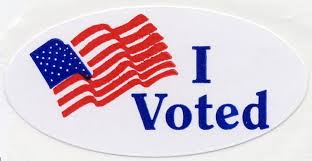Question: On Election Day, what is the best way to engage in conversation with colleagues without getting overly political?
Allow me to start here: VOTE! For those of you in the United States, one of the fundamental tenets of our country is the right to vote. In fact, people have marched and protested and been beaten and lost their lives to gain access to and to protect this privilege. In my opinion, we each have a civic duty and obligation to exercise our right to do so. And, yes, your vote counts – every vote counts. Please, please if you have not already done so, stop reading this right now and go to your polling place!
As for engaging with others, conventional wisdom and advice usually goes along the lines of “no religion or politics at work.” I must tell you, I violate this guideline every day of my life! That said, I do have a few tips to share:
- Keep it civil. In this day and age, when partisan politics are at the forefront of many peoples’ minds, if you know that you are unable to have a civil, respectful dialogue with another person on the topic of politics, it’s probably best to avoid it from the start. Maintaining composure and valuing others’ opinions is paramount to ensuring the long-term value of relationships. You certainly don’t have to agree with one another; however, you also don’t have to argue with one another.
- Listen more, talk less. Many people are predisposed toward knee-jerk reactions and thoughtless commentary. As a result, careful, considered listening is often an afterthought. As one of my grade school teachers once said, we have two ears and one mouth for a reason – we ought to listen twice as much as we speak. With listening comes increased awareness, understanding and, frequently, more clarity on our own thoughts, opinions and perspectives.
- Don’t jump to conclusions. Though the headlines might have us thinking otherwise, many people – irrespective of party lines – are often closer together in their belief systems than not. We share many common values even when our opinions or approaches differ. Assume the best in others. Gain fresh insights. Expect that the vast majority of those with whom you interact are generally supporters of the common good.
- Ask questions. By engaging others in dialogue with the use of non-judgmental, open-ended questions, you are more likely to have positive, productive interactions. Consider questions like, “Why is this issue important to you?” or “What ideas has your preferred candidate shared that resonate with you?” Not only will these questions advance your conversations and educate you on a variety of matters, but you are also more likely to learn something new about a contact or colleague.
- Break bread together. When all else fails, sharing a meal or a cup of coffee with another person certainly has a calming, stabilizing effect. No need to quibble over the small stuff – find other topics that interest you both and move beyond politics and religion when necessary.
P.S. — If you are feeling ill-informed about the issues, the candidates, etc., theSkimm offers a handy, non-partisan site called, No Excuses – Vote 2018 with information about issues, key races, your state’s voter ID requirements, and a tool to build your ballot. Check it out! If you know of other such tools, please take a moment to comment below in order to share your insights with the CLC Community.
